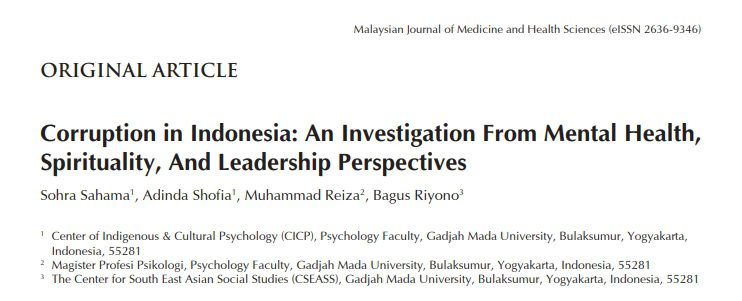
Introduction: This article explores the phenomenon of massive corruption in Indonesia, from the perspectives of “mental health”, “spirituality”, and “leadership”. The extensive corruption in Indonesia becomes a contradiction, considering Indonesia is known as a country with largest number of Muslims in the world. Methods: This study used qualitative method through discourse analysis in trying to explain what is really happening? Why is the country that supposedly promoting religious, moral, and spiritual values; yet trapped in extensive “culture of corruption”? Why are the components of “mental health”, “spirituality”, and “leadership” important in the context of corrupt behaviors and corruption eradication efforts? What is the position of “mental health” if associated with corruption? Results: Specific behaviors of corruptors in Indonesia: repetitive pattern of lies and manipulative behavior; campaigning opposing corruption while doing it behind the curtain; smile, calm and composed, even after committing crime; showing no signs of remorse and degree of arrogance; surprised when sentenced; stating the belief in legal process, yet playing with the very same legal process. Conclusion: This study’s highlights “spirituality” as pivotal factor affecting the components of “mental health” also “leadership”; and ultimately influencing behavior of leaders. As a country with substantial “spiritual capital” of largest Muslim population in the world, it is time for “spirituality” to no longer dwell at level of “religious rituals”, but internalized deeper into values that transform behaviors of government officials/bureaucrats.
